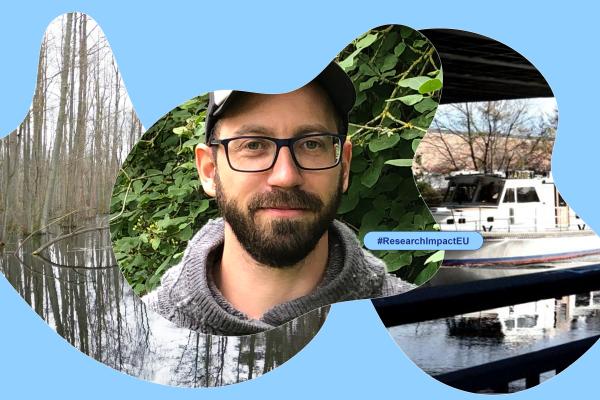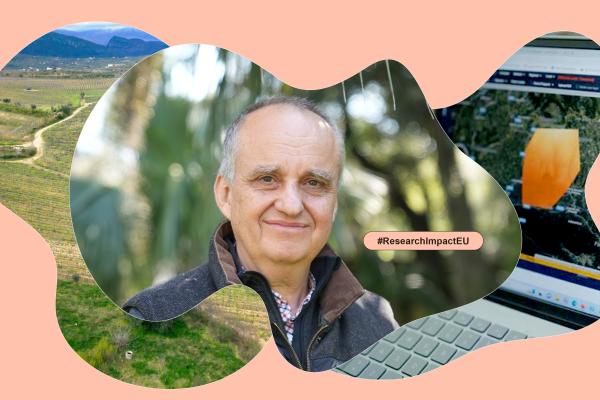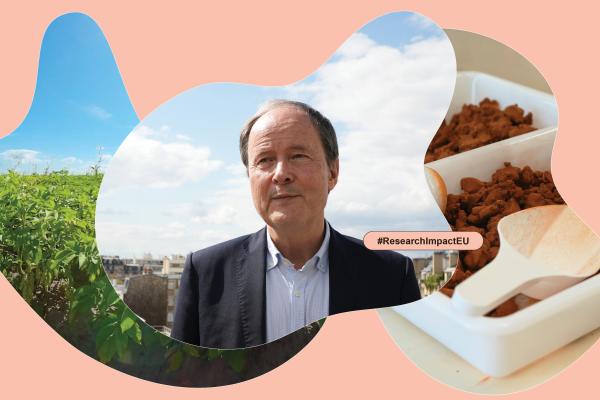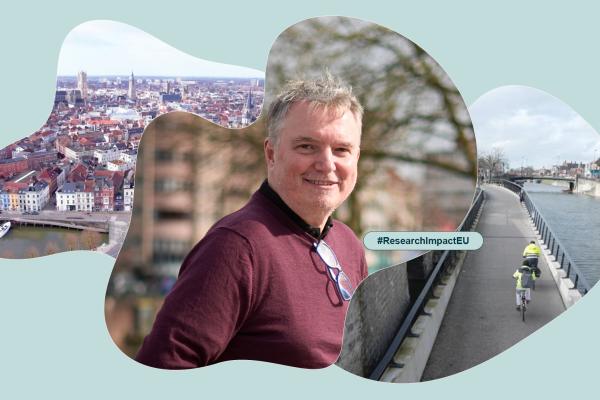On a mission to beat plastic pollution
Oftentimes they imagine a scientist being a crazy person in a lab suit, but then they themselves have been scientists
As part of the German PlasticPiratesEU team, Tim and his colleagues have devised an innovative way to get students and teachers from schools around Germany and beyond to help gather information about the state of plastic pollution in rivers across Europe.
Plastic pollution is an issue that affects all of us, as it threatens wildlife, affects the quality of our oceans and rivers, and can damage our health. Having a clearer idea of how plastic pollution is distributed around our waterways is key to developing effective solutions to the problem, and analysing policies now in place, such as the EU-wide ban on single-use plastics.

The work being carried out by Tim and other researchers of the Plastic Pirates all across Europe is a key example of how research initiatives taking place on a local level around Europe are capable of having a global impact.
Time to get our hands dirty
Bringing schools on board has been vital to gather enough data to form a pollution map of rivers around Europe. Classes who participate, are sent a sampling kit and detailed instructions on collecting waste and microplastic samples from a local river or sea. Then, they report back their findings by uploading directly the data they collect on the project website.
The Plastic Pirates campaign started in Germany in 2016 before being extended to Portugal and Slovenia.
The project now has 12 local EU partners on board: Austria, Belgium, Bulgaria, Germany, Georgia, Greece, Hungary Italy, Lithuania, Portugal, Slovenia, Spain. More than 5000 students participated in this sampling campaign in autumn 2022.
Put simply, ‘there's no team of scientists who could conduct this work on that scale’.
Working alongside the public is valuable in other respects too: it has led to some important and unexpected outcomes. To make the experiment accessible to schools anywhere without having to rent a bus or travel a long way, they are free to chose any river, not specifying the size or whether it is one they think would be particularly polluted.

This means that the scientists involved started to receive results from much smaller rivers than expected, sometimes as little as two metres wide. As Tim explains, ‘the most contaminated microplastic sample we got originated from a river so shallow that the school children could stand in it,’ an important finding that he and his research team had not anticipated.
Valuable perspectives
Tim describes how, as a scientist used to working closely on detailed datasets for days at a time, working with schools and young people has helped him think constantly about the relevance of his work.
“Building new scientific knowledge about the health of our waters through this kind of work is crucial if we are to move towards a more sustainable and healthy future
‘When you work with school children, you have to surface all the time and be able to explain your work, and to rethink, also for me as a scientist, what am I doing here? Is that really relevant? How could I explain that to school children, but also to the public? Is this relevant for society?’
The value of bridging research with real-life issues is particularly important when it comes to plastic pollution. Everyone is aware that it is a major problem that needs action, but it is not always clear to children and younger students, , how they can make a difference. ‘You cannot tell them to buy food that is twice as expensive because it comes without packaging,’ Tim points out.
By involving young people in hands-on scientific research which goes on to be peer-reviewed and published, the children gain scientific literacy and learn about how to participate in investigations that tackle problems society is facing. Anecdotally, he mentioned that after participating, some students and teachers contacted his lab for advice on experiments they wanted to carry out themselves.
Pollution-free waters are critical for the health of both citizens and planet. Building new scientific knowledge about the health of our waters through this kind of work is crucial - if we don’t know what’s wrong, we can’t fix it.
Science, research and innovation: our secret ally
This research is part of the EU’s efforts to discover new ways to prepare for climate change, and protect our oceans and waters. Together, EU countries can work more effectively, by pooling funding and expertise from around the world, coordinating international efforts, and benefitting from local knowhow.
Thanks to EU investments, it is possible for international research collaboration to address challenges too big to be addressed by one country alone.
Join researchers on a mission to protect our planet and society, by sharing, liking and following the stories of #ResearchImpactEU.
Research and innovation for the European Green Deal
We are on a mission for 2030!
Explore the European Research and Innovation Exhibition where we showcase concrete solutions for our greatest challenges






